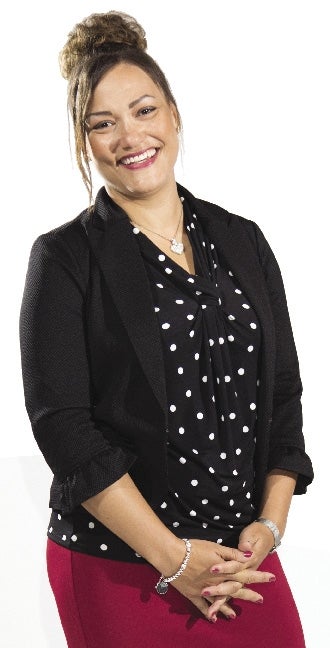For heritage months to go away, all individuals from all backgrounds must be centered in the American narrative.
Get Instant Access to This Article
Subscribe to Worcester Business Journal and get immediate access to all of our subscriber-only content and much more.
- Critical Central Massachusetts business news updated daily.
- Immediate access to all subscriber-only content on our website.
- Bi-weekly print or digital editions of our award-winning publication.
- Special bonus issues like the WBJ Book of Lists.
- Exclusive ticket prize draws for our in-person events.
Click here to purchase a paywall bypass link for this article.
In the closing days of February’s Black History Heritage Month, my daughter, a member of Generation Z, asked me, “Why do we still have heritage months?”
I explained to her how and why we have not evolved enough as a nation in action-centered justice and inclusion to not have these nationally recognized heritage months, which are critical educational and celebratory observations for Americans whose identities are not centered and celebrated like those from majority backgrounds. My daughter was earnest in her question, wondering how in 2024 do we still not recognize Black history as American history all the time.
I look forward to the celebration of nationally recognized heritage months every year, personally as a student of and champion for diversity and pluralism, and professionally as a justice, equity, diversity, and inclusion (JEDI) practitioner. Still, I can’t help but contemplate the question posed by my daughter. For heritage months to go away, all individuals from all backgrounds must be centered in the American narrative. We must tell untold stories of the past and celebrate the diversity of people making history right now. In our organizations, we must be more intentional about centering organizational cultures conducive to the needs of all employees and expand networks of employees that are diverse in thought, perspective, generationally, racially, ethnically, educationally, and by lived experience. This will create welcoming, equitable spaces bringing all of this diversity together, where everyone can work comfortably and thrive.
We, as leaders, must be intentional in the spaces we navigate, and specifically to champion DEI. Chances are, if a leader does not champion or is opposed to DEI, they may not understand what DEI is. DEI is not about divisiveness; it’s not about shaming white people; and it’s not about liberalism or Marxism. These are false narratives; please do not fall to the hype; please do not be distracted from the truth. DEI is about every single individual, white and non-white, rich and poor, educated and uneducated. DEI is about liberty and justice for all, about equity and inclusion, about celebrating our differences and using them to make us a more secure, collected one body.
This is the body of America.
Championing DEI does not have to happen in any over-the-top, orchestrated way, but rather with intentionality. DEI has to be a culture value embedded into the fabric of the organization. The white principal of a nearby elementary school predominantly white student-populated provides an excellent example of how to show up with intentionality in this space. He posted the following in his current events commentary to students’ families: “We learned a lot about Black history this past month and recognize that Black history is American history.”
In my work in an organization with the mission to create technology in support of national security, it’s clear the impact of societal division and any breakdown of democracy is a threat to national security. DEI breakdown, beginning foundationally with a lack of diverse representation, is stifling to team project work. The work of DEI is to break down barriers, create inclusive spaces and access, bolster connectivity, and use the talent of a diverse collective to innovate and solve big problems. Global adversaries against the American way of life and democracy cannot emulate, do not understand, and are not able to combat the power of the diversity of our nation, which fuels the success of our country, including our military, to protect us against external threats. We must listen to one another, practice civil discourse in disagreement, understand different perspectives, address conflict respectfully, and be able to adapt solutions that meet the needs of everyone across our differences.
We have a long way to go before Black, indigenous, people of color (BIPOC) are centered and celebrated in this country. We must understand and act on the premise that enacting DEI and accessibility are not sub-tier priorities, nor divisive in nature. Rather, elevating DEI is critically necessary for the success of our organizations, for our society, and for our country’s global endeavors.
Bonnie J. Walker, a Worcester resident, is principal diversity & inclusion officer at MIT’s Lincoln Laboratory in Lexington.

